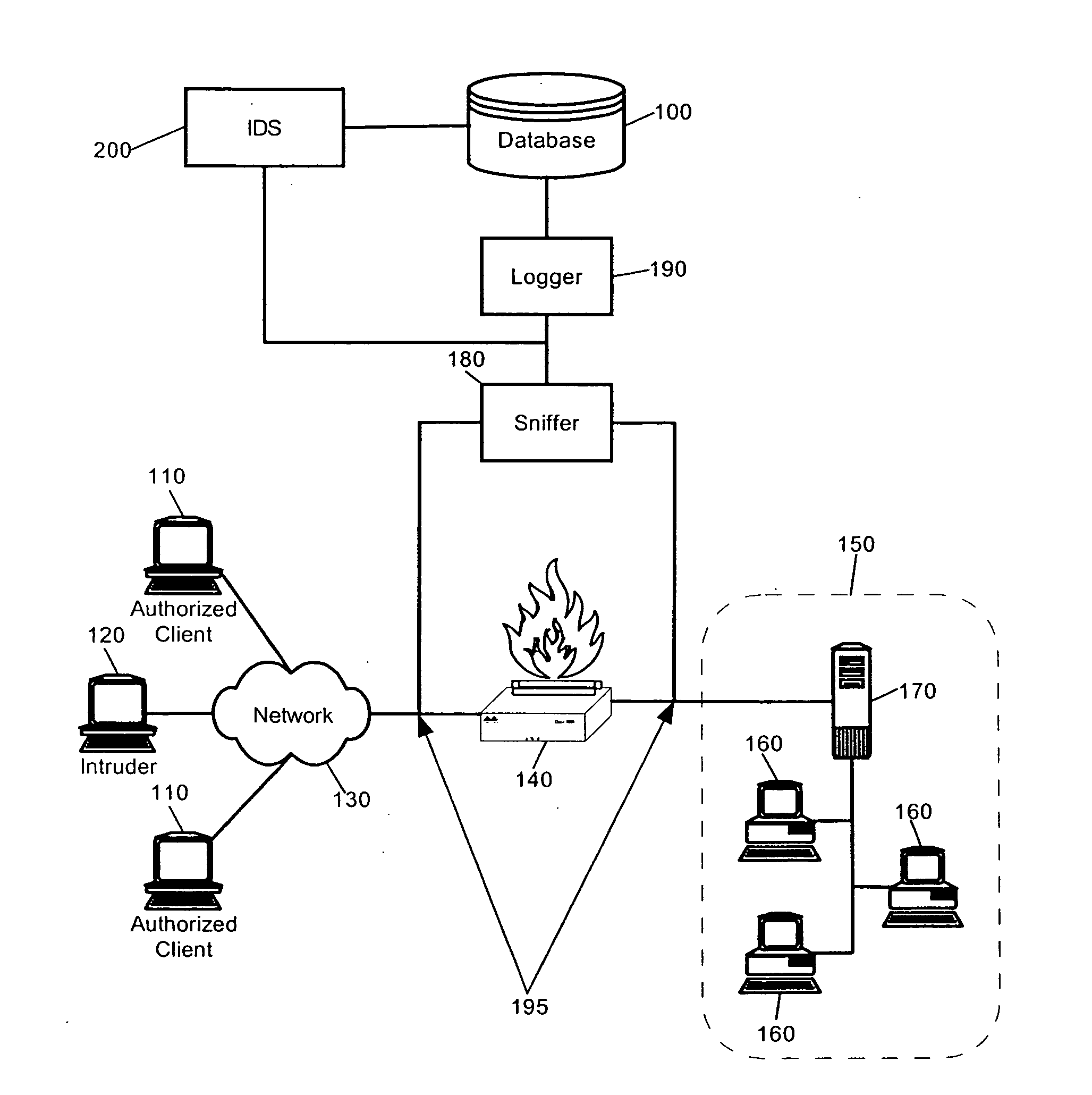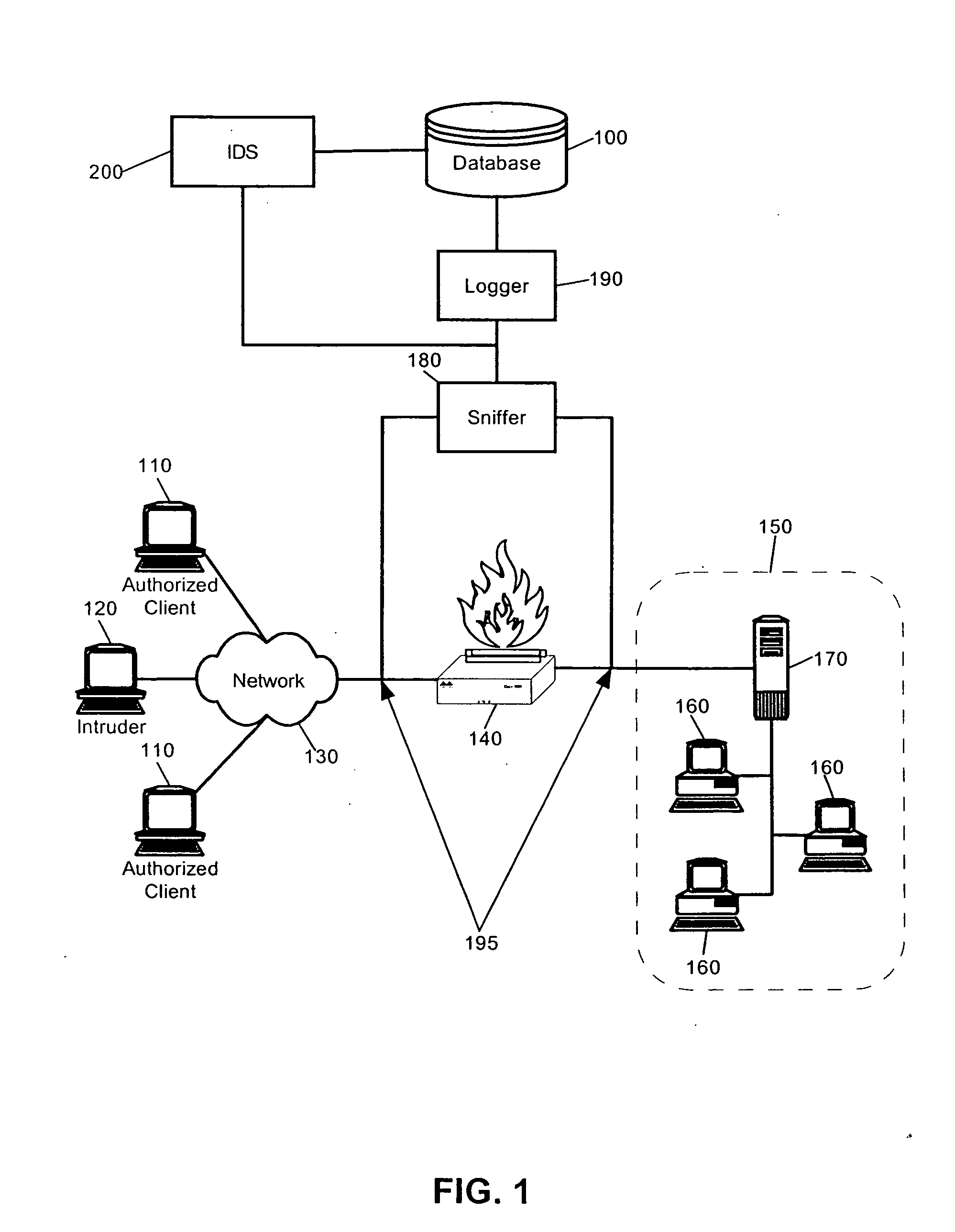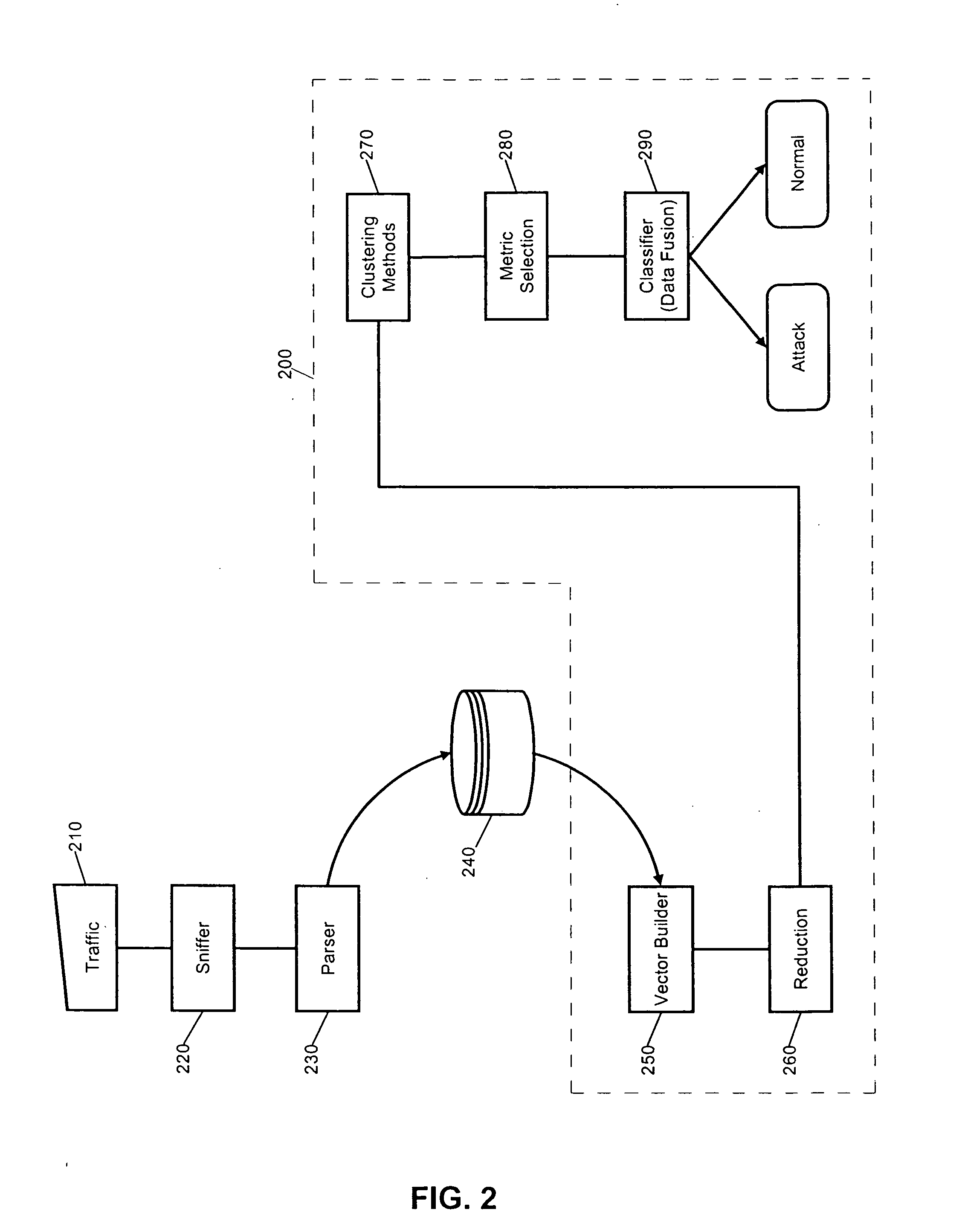Intrusion detection system
a detection system and intrusion detection technology, applied in the field of computer communication network security and performance monitoring, can solve the problems of unauthorized intruders continuously, vulnerable computers can experience nuisance damage, and high-speed access is not without its price, so as to facilitate robust analysis of stored data
- Summary
- Abstract
- Description
- Claims
- Application Information
AI Technical Summary
Benefits of technology
Problems solved by technology
Method used
Image
Examples
Embodiment Construction
[0035] The present invention is an IDS which has been configured to perform anomaly based event detection, and in particular, intrusion detection, based upon a robust analysis of network traffic vectors derived from granular network packet fields stored in a database. Specifically, the granular network traffic vectors can include scalar values for individual fields in a network packet, such as a network packet which conforms to TCP / IP, UDP / IP, ICMP / IP and the like. Notably, each field can be captured in real-time and stored in a different record in the database so that feature vectors can be constructed from selected combinations of the fields.
[0036] Once the feature vectors have been constructed, a multi-variate analysis can be performed upon the feature vectors. For example, one or more self-organizing clustering methodologies can be applied to the feature vectors to produce a set of clusters. Subsequently, a correlative analysis can be performed upon the set of clusters based up...
PUM
 Login to View More
Login to View More Abstract
Description
Claims
Application Information
 Login to View More
Login to View More - R&D
- Intellectual Property
- Life Sciences
- Materials
- Tech Scout
- Unparalleled Data Quality
- Higher Quality Content
- 60% Fewer Hallucinations
Browse by: Latest US Patents, China's latest patents, Technical Efficacy Thesaurus, Application Domain, Technology Topic, Popular Technical Reports.
© 2025 PatSnap. All rights reserved.Legal|Privacy policy|Modern Slavery Act Transparency Statement|Sitemap|About US| Contact US: help@patsnap.com



